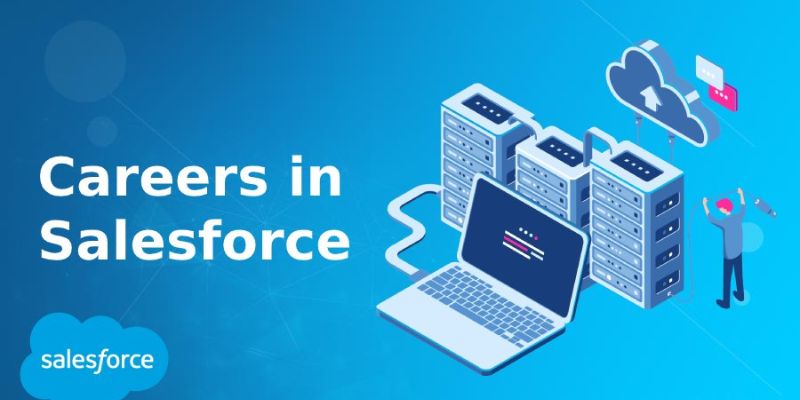
Salesforce has become one of the most widely adopted customer relationship management platforms across various industries. As companies adopt digital transformation, the need for professionals who can manage, customize, and innovate with Salesforce tools continues to grow. Learning this platform can open several career paths, especially when one gains practical exposure through hands-on learning environments like a Salesforce Training Chennai program. Whether one is new to the tech field or looking to expand their skills, Salesforce offers opportunities that are both diverse and rewarding. This blog explores the different career roles available to those who complete Salesforce training, and how the skills learned align with today’s enterprise needs.
Understanding Salesforce and Its Demand
It is more than just a CRM platform. It supports sales, customer service, marketing automation, analytics, and application development. As businesses aim to streamline customer interactions and data management, Salesforce remains at the core of their digital strategy. This has created a demand for professionals who understand how to configure, develop, and optimise Salesforce solutions. From startups to multinational enterprises, organisations need trained individuals who can use Salesforce to enhance workflows, manage customer data, and ensure business efficiency.
Entry-Level Roles for Salesforce Learners
Individuals starting their Salesforce journey often begin in administrative or support roles. The Salesforce Administrator is typically the first career step. Administrators are a reliable for managing user access, creating reports, configuring dashboards, and ensuring the smooth operation of the system. As these professionals become familiar with workflows, security settings, and automation tools, they often collaborate closely with other departments.
Advancing to Developer and Consultant Positions
After gaining some experience, many professionals move into Salesforce Developer roles. Developers write code to extend platform functionality. They build custom applications, triggers, Lightning components, and Apex classes to meet business-specific needs. Others may transition into functional roles such as Salesforce Consultants. These professionals work with clients to gather requirements, design workflows, and configure the platform to meet business objectives. Consultants are involved in project planning, stakeholder communication, and user training. A background that includes exposure to cloud technologies. AWS Training in Chennai can further strengthen the profile of a Salesforce professional, especially when dealing with integrations and data migration tasks.
Opportunities in Business Analysis and Project Management
Salesforce-trained professionals also find opportunities in business analysis and project management. Business Analysts identify improvement areas within the Salesforce environment, propose new features, and coordinate with technical teams to deliver solutions. Project Managers oversee the delivery of Salesforce-related initiatives. They ensure that goals are aligned, resources are efficiently allocated, and deadlines are met. Both of these roles require a balance of technical understanding and strategic thinking. Salesforce knowledge supports informed decision-making and smooth collaboration between technical and non-technical teams. These roles suit professionals who prefer leading and organising over building software directly.
Specialisations and Advanced Certifications
Salesforce offers a range of specialisations, including roles in marketing automation (Marketing Cloud), analytics (Tableau CRM), and industry-specific solutions such as Health Cloud or Financial Services Cloud. Each of these domains requires in-depth knowledge and may involve advanced certifications. Pursuing these specialisations opens opportunities to work in niche roles with higher responsibility and better compensation. Supplementing Salesforce expertise with exposure to DevOps practices can be a valuable, particularly for those involved in managing continuous deployment, integration, and sandbox environments. Practical exposure through a DevOps Training in Chennai can give professionals the edge when working on enterprise-level implementations.
Freelance, Remote, and Global Opportunities
The Salesforce ecosystem supports a large number of freelance and remote positions. Many companies hire Salesforce professionals on contract for specific projects, migrations, or audits. These roles offer flexibility and the potential to work with clients across different time zones and industries. Who demonstrate a deep understanding of the Salesforce platform and possess a strong portfolio can command significant earnings even outside traditional employment structures. The global recognition of Salesforce certifications also means that professionals trained locally can compete for international roles.
Long-Term Career Growth and Leadership Roles
With years of experience, Salesforce professionals can move into senior leadership positions such as Salesforce Solution Architect, Program Manager, or Technical Lead. These roles involve strategic planning, architecture design, team management, and cross-platform integration. Solution Architects are especially in demand. They translate business requirements into robust system architecture and oversee the technical direction of projects. A strong foundation built through the FITA Academy prepares learners to meet global standards in both communication and technical expertise. Their decisions have lasting impact on the organisation’s technology stack and performance. As companies grow, they require leaders who not only understand technology but can also shape long-term visions using platforms like Salesforce. Professionals who start with admin or developer roles and grow into architecture or consulting careers often become the decision-makers guiding enterprise-wide digital strategy.